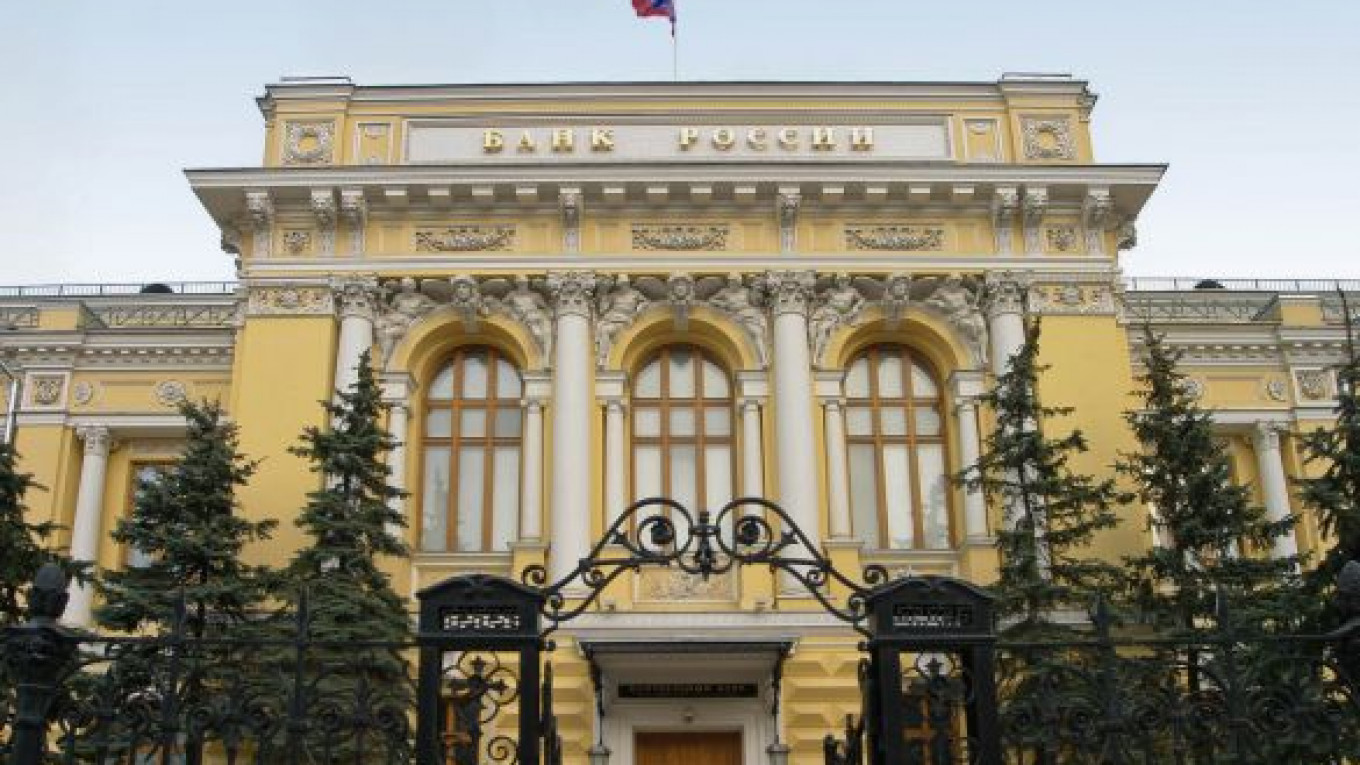The Central Bank will kick off its easing cycle in September in a long-expected move to shield the economy from a deepening slowdown while keeping inflation in check, a poll showed.
The easing bias would contrast with other emerging markets that have raised rates in the past month as the impending end of loose U.S. monetary policy forces investors to review the high-yielding assets that they have been buying with cheap money.
The poll of 16 economists showed a gloomier picture for the Russian economy which was expected to grow 2.2 percent in 2013, the slowest pace in four years, reflecting an across-the-board slowdown in consumption, investment and net exports.
Economists saw the economy growing by 2.5 percent in the previous forecast.
"July macro data largely dispelled fears of the Russian economy slipping into recession, but there is no way it will return to 3 or 4 percent growth," said Alexander Morozov, economist at HSBC.
The Economic Development Ministry cut its GDP growth forecast for 2013 to 1.8 percent from 2.4 percent this week, a pace that would complicate the government's task of fulfilling President Vladimir Putin's pre-election spending promises at a time when his approval ratings are sliding.
The Central Bank, which holds a policy meeting on Sept. 13, has left its main lending rates unchanged for 11 successive months despite political pressure to cheapen lending to boost sluggish economic growth.
The financial regulator, chaired since June by Elvira Nabiullina, a former economic aide to Putin, has reiterated that keeping the lid on inflation remains its first priority.
Analysts expect inflation to fall below the upper boundary of the bank's target band — 6 percent — by the end of September, bolstering the case to cut interest rates.
Forecasters have become slightly more optimistic about inflation compared to the previous month's poll, predicting that CPI inflation would end the year at 5.8 percent, down from 6.6 percent in 2012.
Out of 13 analysts who made interest rate forecasts for September, 11 predicted that the Central Bank would lower its main policy by 25 basis points.
The bank's key lending rate, the minimum auction repo rate, now stands at 5.5 percent. Analysts have stuck to expectations of policy easing in the third quarter since January.
They see more aggressive policy easing than in the previous poll, expecting 50 basis points in rate cuts this year and a quarter point cut in the first quarter of 2014
"We reiterate our forecast for 50 basis points rate cuts till the year-end, which should not undermine the Central Bank's reputation," said Dmitry Polevoi, economist at ING bank.
Some analysts believe the bank would not row against the tide amid expectations of higher rates globally, risking the weakening of the Russian currency further below its four-year lows.
Other economists say that the market has already priced in rate cuts and is now more sensitive to the crisis in Syria and comments from the U.S. Federal Reserve.
"At the moment, the ruble has joined the global emerging market dance. Fed's tapering and Syria confrontation are more crucial to moving the ruble … than oil price changes or the country's macro fundamentals," said Vladimir Miklashevsky at Danske Bank.
Overall, analysts do not expect far-reaching consequences for the ruble, predicting the exchange rate at 33.00 by year-end versus 33.24 currently as the price of oil, Russia's chief export, remains strong.
The forecast was little changed, compared to 32.8 rubles versus dollar in the previous poll.
A Message from The Moscow Times:
Dear readers,
We are facing unprecedented challenges. Russia's Prosecutor General's Office has designated The Moscow Times as an "undesirable" organization, criminalizing our work and putting our staff at risk of prosecution. This follows our earlier unjust labeling as a "foreign agent."
These actions are direct attempts to silence independent journalism in Russia. The authorities claim our work "discredits the decisions of the Russian leadership." We see things differently: we strive to provide accurate, unbiased reporting on Russia.
We, the journalists of The Moscow Times, refuse to be silenced. But to continue our work, we need your help.
Your support, no matter how small, makes a world of difference. If you can, please support us monthly starting from just $2. It's quick to set up, and every contribution makes a significant impact.
By supporting The Moscow Times, you're defending open, independent journalism in the face of repression. Thank you for standing with us.
Remind me later.






